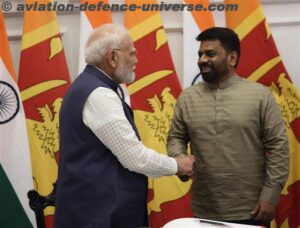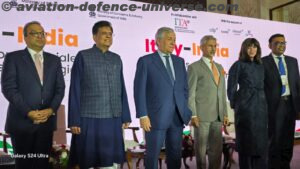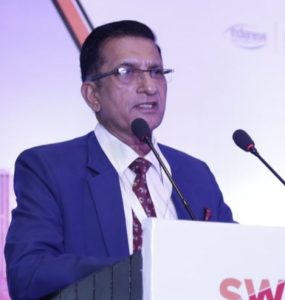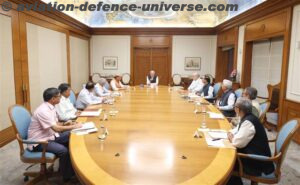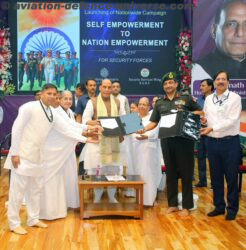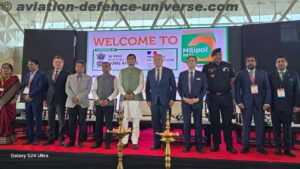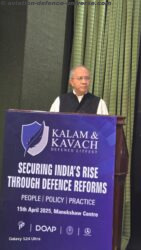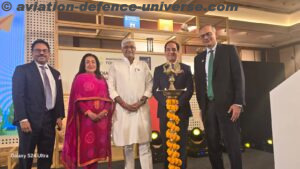
- Is NATO Plus a great idea?
By Jai Kumar Verma
New Delhi. 20 June 2023. Countdown to Indian Prime Minister Narendra Modi’s forthcoming four-day state visit has begun from 21st to 24th June 2023, all eyes geo-politically will be on this visit and on Indo-US ties. The first summit level meet during Joe Biden’s presidency, is not the first time the two leaders will meet, as both have met several times earlier and have initiated many positive developments between both the countries.
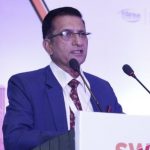
The visit would also include a state dinner hosted by US President and First Lady on 22nd June. Biden has invited French President Emmanuel Macron and South Korean President Yoon Suk Yeol and Prime Minister Modi is the third world leader who was invited for a state visit. The forthcoming Modi visit is also the time for the powerful Indian Americans community to show solidarity with their home country. Prior the visit ‘India Unity Day’ marches will be organised in 20 major cities on June 18 by Indian origin community.
White House Press Secretary Karine Jean-Pierre issued a warm statement which mentions that “The visit will strengthen our two countries’ shared commitment to a free, open, prosperous, and secure Indo-Pacific and our shared resolve to elevate our strategic technology partnership, including in defense, clean energy, and space.”
India is not only the fifth largest economy, but it is also a fastest growing economy. Same way India is not only the most populous country it has young population while several countries of the world are worried about their aging population. Biden’s invitation to Modi for the state visit to the US and also address a joint session of US Congress second time makes it evidently clear that US attaches great importance to rising India. It is clear that although US is bolstering its ties in the western Pacific and US, UK and Australia are in way to create a new fleet of nuclear-powered submarines all to counter the aggressive and expansionist China, but it does not mitigate the importance of India in US strategy of Indo-Pacific.
Now US approach towards India-Russia relations is more logical and realistic as it comprehends that Indo Russian relations are not only old but time tested too. Hence India has not condemned Russia in current Russia-Ukraine war. India also refused to vote against Russia in United Nations and made huge purchases of oil from Russia on discounted price. Now US has adopted a policy where Indian dependence of Russian arms is reducing. According to reports in 2017 Russian share in India’s defence purchases was 62 % however in 2022 the Russian share was reduced to 44%. Partly Russia is not able to supply more arms to India because of Russia Ukraine war and secondly the effectiveness of Russian arms is also tested. Although India’s dependence on Russian armaments is declining partially because India is diversifying arms purchase and also because India is giving much emphasis on ‘Make in India Programme’ especially on defence sector.
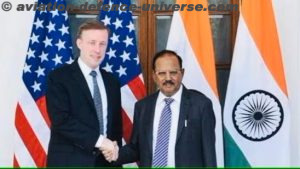 Indian National Security Advisor Ajit Doval’s meeting with US National Security Advisor Jake Sullivan and then launching of Initiative on Critical and Emerging Technologies (ICET) in Washington DC was important. The latest visit of US Defence Secretary Lloyd Austin in the beginning of this month was also crucial. Both parties discussed the transfer of critical defence technology for joint development of military hardware.
Indian National Security Advisor Ajit Doval’s meeting with US National Security Advisor Jake Sullivan and then launching of Initiative on Critical and Emerging Technologies (ICET) in Washington DC was important. The latest visit of US Defence Secretary Lloyd Austin in the beginning of this month was also crucial. Both parties discussed the transfer of critical defence technology for joint development of military hardware.
A Congressional Committee in the US recommended that India should be included in NATO+(Plus) so that NATO plus becomes more powerful. The Congressional Committee recommended that “Winning the strategic competition with the Chinese Communist Party (CCP) and ensuring the security of Taiwan demands that the US strengthen ties with our allies and security partners including India.” NATO Plus which is a security arrangement has 31 NATO members and five countries namely Australia, Japan, New Zealand, Israel, and South Korea are aligned. The members get incessant opportunity of intelligence sharing and by joining NATO Plus India would get access to advance military technology. Although the proposal came just before the forthcoming visit of Modi, but Delhi made it clear that NATO Plus is not in the interest of India. India’s External Affairs Minister S Jaishankar made it clear on 9 June 2023 that India has no intend to join NATO plus as it is not in the interest of the country. He also made it clear that India is capable of defending itself from any aggression including Chinese hostility.
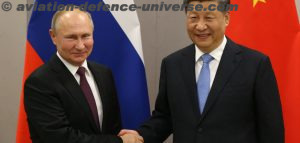 India elucidated that China is passing through an economic crisis and its exports are declining hence it would not be difficult for rising India to counter Chinese offensive. If India joins NATO Plus it would be a big setback to India Russia relations. If India joins NATO Plus the relations between Russia and China would be further strengthened which would be against the interest of India. Not only this if India joins Western block, then Pakistan which is already close to China would also become closer to Russia. Although recently Pakistan has received one oil consignment from Russia on discounted prices, but still India-Russia partnership is much stronger than Russia Pakistan relationship.
India elucidated that China is passing through an economic crisis and its exports are declining hence it would not be difficult for rising India to counter Chinese offensive. If India joins NATO Plus it would be a big setback to India Russia relations. If India joins NATO Plus the relations between Russia and China would be further strengthened which would be against the interest of India. Not only this if India joins Western block, then Pakistan which is already close to China would also become closer to Russia. Although recently Pakistan has received one oil consignment from Russia on discounted prices, but still India-Russia partnership is much stronger than Russia Pakistan relationship.
India has already signed important agreements with United States including LEMOA (Logistics Exchange Memorandum of Agreement), COMCASA (Communications Compatibility and Security Agreement) and BECA (Basic Exchange Agreement). These agreements help India to get access to high technology hence joining NATO Plus may not be much useful. The US proposal is keeping the security of Taiwan in mind and not of India.
US is keen to involve India in defence mechanism to counter the expansionist design of China. Although curbing of China is in the interest of India, but Delhi should not come in forefront as both India and China are not only neighbours but nuclear armed countries.
India is very keen to develop its defence industry so that its dependence on import can be reduced. India also wants to emerge as major exporter of arms and ammunition. It has fixed target of exporting armaments worth Rs.35000 crore in 2025 hence getting of cutting-edge technology is very important. But joining of NATO Plus may not be in the overall interest of the country.
India and US would sign several agreements including important defence deals during the visit. General Electric (GE) and Hindustan Aeronautics Ltd (HAL) would jointly produce F 414 jet engines in India to the finish line. GE has agreed to share technology with HAL, it would be a big boost to Indian defence industry. The technology of producing jet engines is only with four countries i.e., US, Russia, France, and UK, even China buys jet engines from Russia.
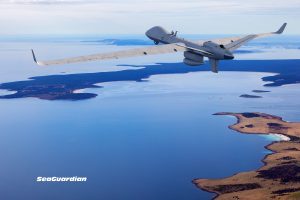 US, which wants to include India in its defence orbit, agreed to sell 30 drones which would be worth $3 billion. These drones are extremely effective and can be used for surveillance, intelligence gathering as well as for attack. The drones are MQ 1, MQ 9, MQ 9 Reaper and MQ Sea Guardian. India can buy any of these drones as per the requirement. These drones can be used by all the three services.
US, which wants to include India in its defence orbit, agreed to sell 30 drones which would be worth $3 billion. These drones are extremely effective and can be used for surveillance, intelligence gathering as well as for attack. The drones are MQ 1, MQ 9, MQ 9 Reaper and MQ Sea Guardian. India can buy any of these drones as per the requirement. These drones can be used by all the three services.
India should not rush to become US partner to confront China as the latter is not threatening India’s security in a big way. Secondly there is no direct commitment from US that it would come directly to confront China in case of war between India and China. Hence Delhi should be careful. India should not entangle if war breaks out between China and US and its allies on Taiwan. Not only this India should be careful that it does not fall in the trap of ‘danger from China’. India should increase its capability and should be prepared to face China in case of eventuality. However, taking the cutting-edge technology from US and other countries is advisable.
With all these pros and cons the visit becomes not only important but also cynosure of all eyes. The truth which emerges is India is too important to be ignored.
(Jai Kumar Verma is a Delhi-based strategic analyst and member of United Services Institute of India and Institute for Defence Studies and Analyses. The views in the article are solely the author’s. He can be contacted at editor.adu@gmail.com)
.






































